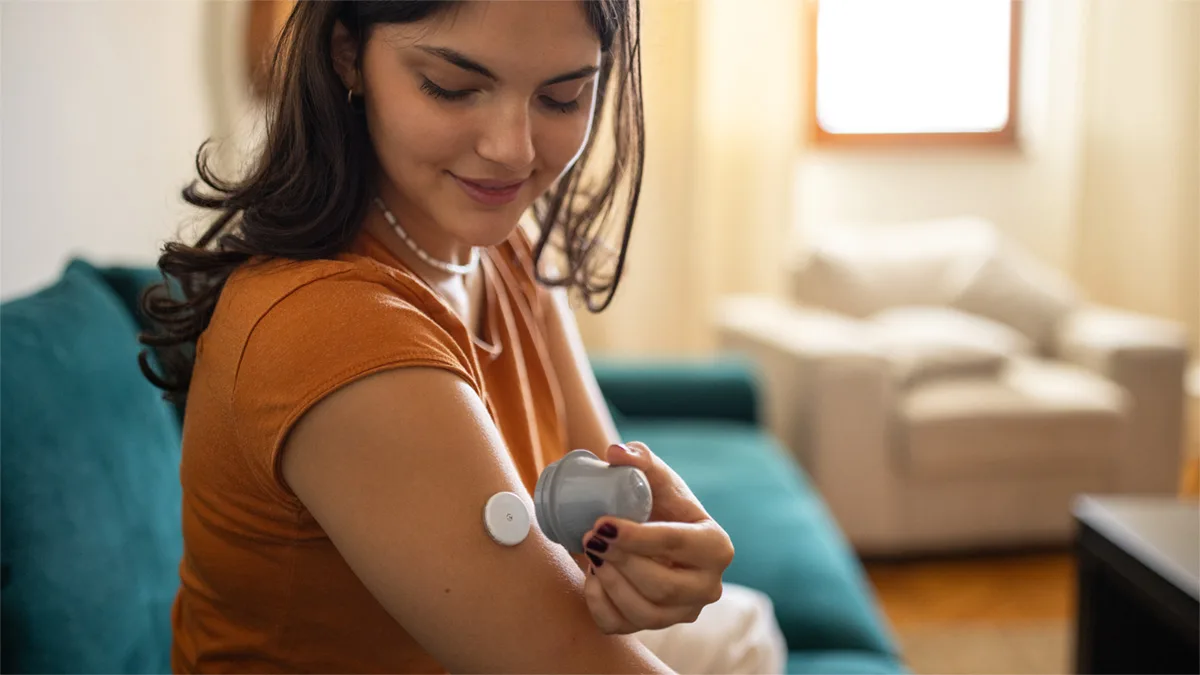
Overview
The convergence of technology and biology is moving beyond traditional drug development and clinical settings to reshape how we monitor, prevent and treat disease.
TechBio is making healthcare more accessible, efficient and integrated into daily life
In the future, will your digital watch slide into your internet-connected refrigerator's DMs to warn about your glucose levels before you get hangry?
That's one glimpse of how technology could transform everyday healthcare, according to industry experts who discussed the emerging field of TechBio at the recent Biofuture conference in New York at Cure.
“It may not be too far in the future that your refrigerator advises, ‘Don’t eat that. Your glucose is too high,’" said Viq Pervaaz, Senior Vice President at New York City Economic Development Corporation. "It won't be something that you seek out. It's just going to be part of how you go around the course of your day."
The convergence of technology and biology is moving beyond traditional drug development and clinical settings to reshape how we monitor, prevent and treat disease in our daily lives. The panel discussion brought together venture capitalists, biotech founders and economic development leaders to explore how emerging technologies could revolutionize healthcare delivery.
The field of TechBio is broad, they explained. It encompasses drug discovery tools, advances in personalized medicine, streamlining clinical trials and enhancing disease diagnosis and management.
These innovations aim to make healthcare more accessible, efficient and integrated into daily life. For years, many of these technologies were considered 'the sort of unsexy part of the industry,' according to Daniella Kranjac, MBA, Founding GP at Avant Bio. But that perception is changing as companies recognize how critical these tools are for advancing healthcare.
TechBio Comes to Neuroscience
The transformation is already happening in neuroscience, where new approaches, including bioelectric treatments including medical devices that stimulate the vagus nerve, are challenging traditional pharmaceutical therapies.
"Conditions like depression, epilepsy, Alzheimer’s and Parkinson’s all have non-pharmaceutical solutions today,” said Ajit Singh, PhD, Partner at Artiman Ventures. "I'm referring to stuff that you can patch and feel, the hardware that's solving those conditions."
It also includes artificial intelligence (AI) – which tends to get the most headlines. However, Kranjac cautioned against viewing any single technology as a cure-all. Success comes from solving specific healthcare challenges rather than promising sweeping solutions.
“Labeling a company with AI doesn’t guarantee a high valuation," Kranjac said.
The reality of where AI makes a real difference today is more nuanced, particularly in medical diagnosis. Singh said AI works best in situations with fewer variables to consider - like diagnosing pneumonia versus breast cancer - and where the technology's main job is ruling out conditions with high confidence.
TechBio Takes on Manufacturing Biologics
Kranjac pointed to another surprising area ripe for technological transformation: the manufacturing of biological medicines.
"Many in the room would be kind of shocked to know how little automation there is in biologics manufacturing versus, for example, manufacturing of food," she said. "It's much more highly automated, much more feedback control around the production there and much more characterized," in food production, she said. “that's something that I think is ripe for opportunity for us.”
TechBio in Clinical Trials
The panelists also highlighted technology's potential to address one of healthcare's persistent challenges: the lack of diversity in clinical trials.
Pervaaz said AI and other digital tools could help "pull diverse populations who are primarily impacted by these diseases," into clinical trials, rather than just focusing on treatment access after drugs are developed.
The ultimate impact of these advances could extend far beyond treating individual conditions, said Kranjac.
“There's just a ton of applications,” she said. “And I think what's exciting to us right now is that biotech and pharma are waking up to this unique differentiation that it can provide them.”








